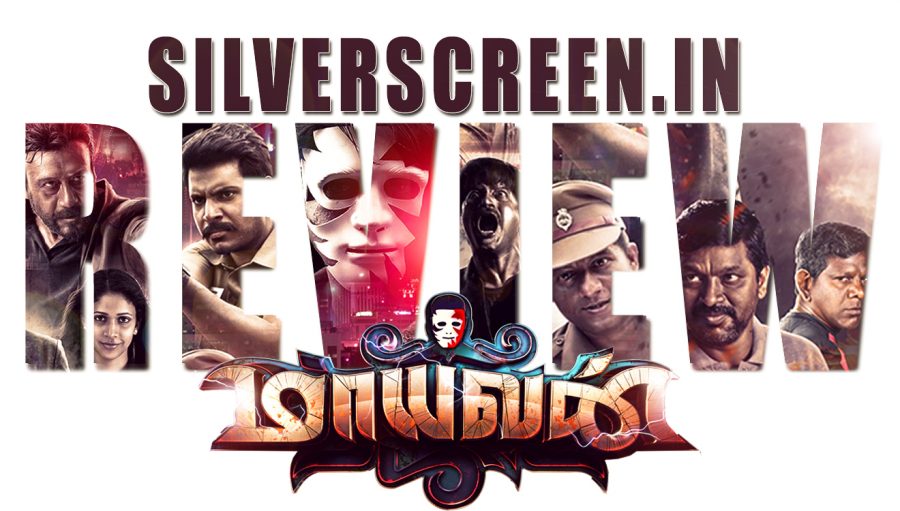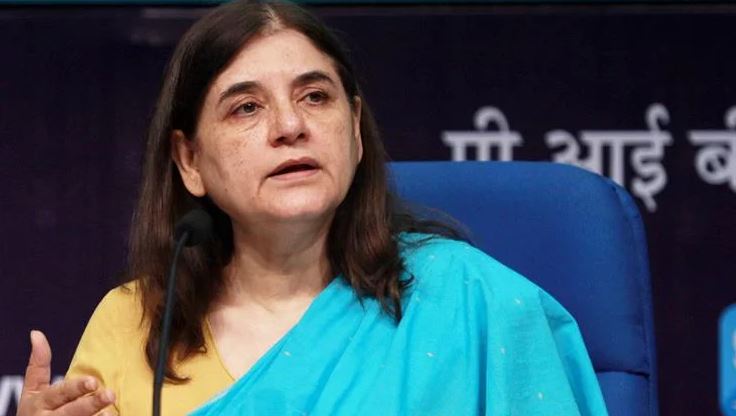Maayavan is delightful just for one reason: It is filled with those lovely little things that would hearten anyone looking to remove themselves from reality. I don’t want to be here, you say, and CV Kumar buys you a ticket out of there. Brutal murders, cops on a trail, future-science bordering on fiction, a rogue scientist… CV Kumar’s directorial debut – quite like his production ventures – deals with everything out of the ordinary. And, what a relief that is. No in-your-face heroics, no dreary sentimentality, no songs; just a tale that derives inspiration from Tamil novels of times past.
The movie opens in the year 2037; a man lays in bed, hooked to wires, a retro tune playing in the background as Sundeep Kishan waits on him. Cut to 2017; a cop (Sundeep as Kumaran) is witness to a series of murders that are eerily similar in nature despite the killers having died themselves. Further investigation leads to an errant neuro-scientist who no longer seems to be alive according to records, but is actually living somewhere.
If anything, Maayavan is engrossing. At one point, you begin to wonder if these thrillers would find something other than stray cigarette butts to base their investigations on, but here, while the stub does point to the identity, it isn’t propped up to be some kind of conclusive proof. The stub, in fact, throws up more questions, and opens up other avenues of thought.
Lavanya Tripathi’s character though, is a little baffling. In the role of a psychologist who diagnoses Kumaran with PTSD, she stalks him through the movie, and ends up in the most unlikely places in the name of patient care. When Kumaran wonders, much like we do if she has other clients to attend to at all, there’s absolute nonchalance. Some require special care, she shrugs. Tripathi literally hunts him down to his hideouts, armed with an injection that she’s sure he would need. Kumaran questions her credentials at their meeting, but that doesn’t quite deter her.
Maayavan’s tale revolves around a neuro-scientist who succeeds at his clandestine project – that of duplicating and digitising his conscience and living through several people after death. CV Kumar is careful to eliminate assumptions that the theory is pure fantasy; he quotes several Silicon Valley billionaires who have invested in life-prolonging technology – from cryopreservation and regenerative sciences to other bio-tech projects that aim to increase human life-span. A Stephen Hawking quote too – something which he’s reported to have said at the 2013 Cambridge Film Festival – is featured. “I think the brain is like a program in the mind,” the physicist had said, “so, it is theoretically possible to copy the brain onto a computer so as to provide a form of life after death.”
The film moves at a frenetic pace, barring a few contrived elements. When the scientist’s wife, who is apparently in a coma, draws concentric circles by way of directing the cops to her husband’s den, Kumaran miraculously arrives at a clear interpretation. The circles could mean a well, he declares decidedly. And soon enough, a state-of-the-art lab is found within a pseudo well.
Recommended
For a risqué theme that could well give you the chills, and does at some point, Ghibran’s music could have well taken it to town. But, it doesn’t creep up on you as thrillers are required to do, it isn’t pacy enough, and doesn’t invoke enough horror in the proceedings. Maayavan wanted mood, a subdued palette, subtle inflections in voice, and a darker, greyer environment in place of brightly-lit labs with token liquids of assorted colour. Not quite Frankenstein, but a psycho-thriller with the temperament of a psycho-thriller.
*****
The Maayavan review is a Silverscreen original article. It was not paid for or commissioned by anyone associated with the movie. Silverscreen.in and its writers do not have any commercial relationship with movies that are reviewed on the site.



